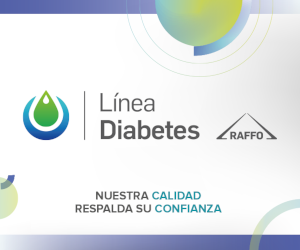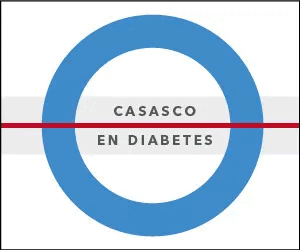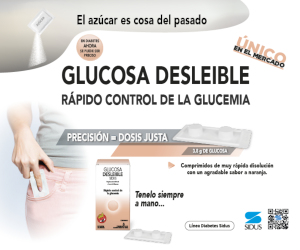Symposium 18: Drug therapy available in Argentina
DOI:
https://doi.org/10.47196/diab.v56i3Sup.599Keywords:
obesity, drugsAbstract
Understanding the physiology of body weight control, which defends the body against weight loss and drives the recovery of lost weight, has shown great advances in the therapeutic goals of a chronic disease such as obesity. The use of drugs for the treatment of obesity is limited by modest perceived efficacy, safety concerns, resistance from patients and physicians, and lack of reimbursement by public and private insurers. These are barriers in drug treatment that must be broken down 1.
Guidelines from the American Heart Association, American College of Cardiology, The Obesity Society recommend that pharmacotherapy should be indicated as an adjunct to diet and exercise in people with a Body Mass Index ≥30 kg/m2 or ≥27 kg/m2 with obesity-related comorbidities 2.
References
I. Yanovski S, et al. Progress in pharmacotherapy for obesity. JAMA 2021; 326 (2):129-130
II. Jensen MD, et al. 2013 AHA/ACC/TOS Guideline for the management of overweight and obesity in adults: a report of the American College of Cardiology/American Heart Association Task Force on Practice Guidelines and The Obesity Society. J Am Coll Cardiol 2014;63:2985-3023.
III. Torgerson JS, et al. XENical in the prevention of diabetes in obese subjects (XENDOS) study: a randomized study of orlistat as an adjunct to lifestyle changes for the prevention of type 2 diabetes in obese patients. Diabetes Care 2004; 27 (1):155-61.
IV. Pi-Sunyer X, et al. A randomized, controlled trial of 3.0 mg of liraglutide in weight management. N Engl J Med 2015;373(1):11-22.
Downloads
Published
How to Cite
Issue
Section
License
Copyright (c) 2022 on behalf of the authors. Reproduction rights: Argentine Diabetes Society

This work is licensed under a Creative Commons Attribution-NonCommercial-NoDerivatives 4.0 International License.
Dirección Nacional de Derecho de Autor, Exp. N° 5.333.129. Instituto Nacional de la Propiedad Industrial, Marca «Revista de la Sociedad Argentina de Diabetes - Asociación Civil» N° de concesión 2.605.405 y N° de disposición 1.404/13.
La Revista de la SAD está licenciada bajo Licencia Creative Commons Atribución – No Comercial – Sin Obra Derivada 4.0 Internacional.
Por otra parte, la Revista SAD permite que los autores mantengan los derechos de autor sin restricciones.







































